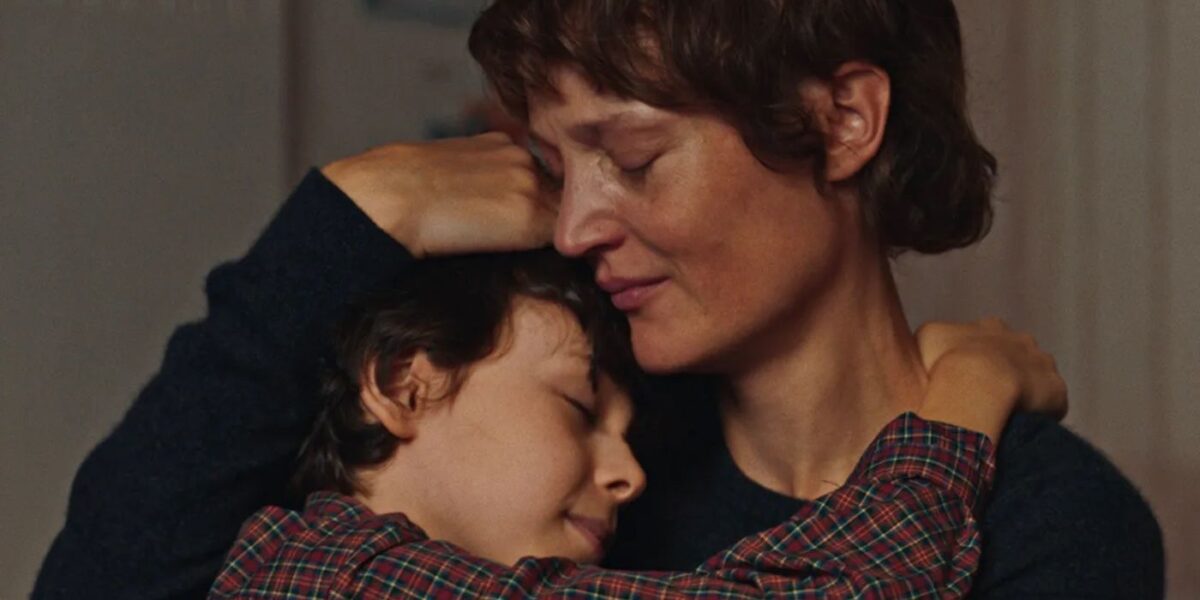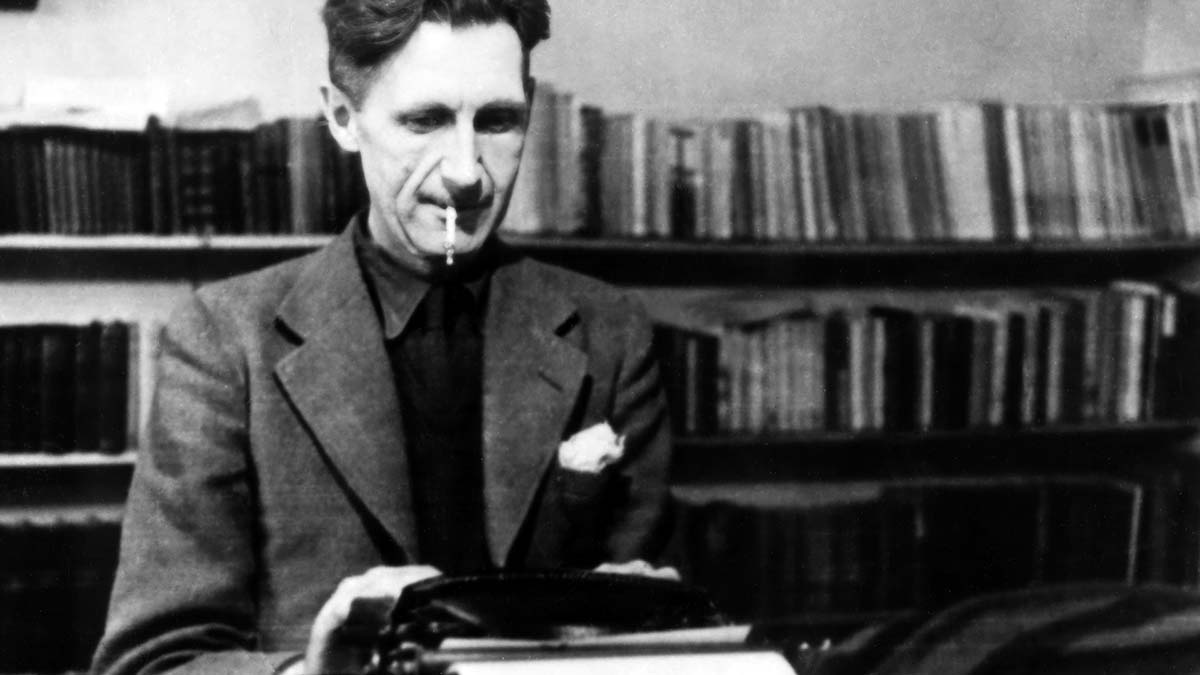
‘Love Me Tender’ Review: The Star of ‘Phantom Thread’ Gives Her Best Performance in Years in This Heartbreaking New Drama
Jul 9, 2025
On the second day of the Karlovy Vary Film Festival, Vicky Krieps, breakout star of Phantom Thread and Hollywood leading lady (even if it’s in one of M. Night Shyamalan’s worst efforts) introduced her latest starring venture, Anna Cazenave Cambet’s Love Me Tender. In her introduction to the film, which premiered at Cannes in the Un Certain Regard section, Krieps revealed that finding funding for this story was difficult due to her character not being “nice.” Krieps’ protagonist is a once-married mother who, taking advantage of her newfound freedom as she starts dating women, in no way fits into Hollywood’s image of a good mom. Her character of Clemence is messy; she drinks, loves to stay out partying and doing poppers, and has tons of sex with people who aren’t the father of her child. But look at Taxi Driver, Krieps notes. Hollywood has been built on stories of volatile men who are allowed to hide behind words like tortured, cool, macho, or even broken. While women, especially mothers, get neglectful, out of control, or much worse. Love Me Tender is a rather grim look at what society expects parents, especially women, to give up, with no happy ending offered to a protagonist we have spent over two hours rooting for. It does slightly fall off in its final act, becoming aimless and stretched, and ending around 30 minutes after it should. But its first two acts are deeply enthralling, and Vicky Krieps’ lead performance is an Odyssean tour de force.
Vicky Krieps Must Fight Her Ex-Husband for Her Child in ‘Love Me Tender’
Image Via Novoprod
Clémence is a Paris-based divorcée who has swapped out law for writing and has switched to dating women for the past few years. She was once married to Laurent (Antoine Reinartz, who you’ll likely remember as the grating prosecuting lawyer in Anatomy of a Fall), and they share their young son Paul, but their separation has always been amicable. When they meet for a late-night dinner, Clémence tells Laurent that she is now seeing women. The already drunk Laurent seems to be fine with it, almost humorously dismissing it. Despite her revelation, Laurent continues to flirt with Clémence, texting her when she’s at a gay club while he’s home alone, and he tries to kiss her on the lips after their dinner. It all seems fairly innocuous, the classic awkward mishaps between two people who used to be in love and are now living separate existences. But that conversation will cause years, or maybe a lifetime, of unimaginable pain for Clémence. When she tries to collect her son from his father’s house, he screams that he hates her and won’t get out of bed, and Laurent does not do anything to help. While it may seem like usual child tantrums, before we know it, Clémence has not seen her son for several months. Laurent fights for and wins full custody, but does not respect Clémence’s visitation rights. Simultaneously, Clémence is trying to continue her life of exploring her sexuality, perhaps finding a new partner, and furthering her writing career. But with every cancelled visit, unanswered text from Laurent, and day without seeing her son, Clémence is put at a standstill in every aspect of her life. When watching Love Me Tender, it’s hard not to think of the divorce/custody battle heavyweights of cinema, with Kramer vs. Kramer and Marriage Story immediately coming to mind. However, as the movie unfolds, the story is much more centered on Clémence as a person, rather than a grieving mother or enraged ex-spouse. With the film jumping forward months in time, it can feel like time is washing over Clémence, and she is forced to be a passenger in her own life, as she must give over her power to Laurent, Child Protective Services, and psychologists. Laurent’s behavior grows more petty and volatile, which eventually passes down into how Paul treats his mother. Clémence is shamed for leaving the well-paying world of law to become an artist, sharing a flat with a much younger party boy. There is nothing she can do right in the eyes of her ex-husband, and with every mistake, her son is held out at a further distance until she feels she can barely see him at all.
The First Two Acts of ‘Love Me Tender’ Are Its Best
Image Via Novoprod
The first act sets up a heart-wrenching premise that we prepare to see fully interrogated for the remainder of the film. Laurent and Clémence clearly need some Anatomy of a Fall screaming match scenes, as his behavior becomes progressively damaging and sinister. While it’s refreshing and welcome to see this premise solely through the eyes of the mother, it can sometimes feel like Clémence’s perspective leaves no room for nuances in any other character. Cambet’s script succeeds in making the audience feel just as helpless as the wounded protagonist, but with such a clear villain in the story, a deeper exploration of Laurent, and how a person can be so consumed by ego, hate, or whatever have you, that he would irreversibly harm the lives of his ex-wife and son by potentially ruining their relationship forever. Clémence’s story is moving to watch, as we see the juxtaposition of her liberation and self-actualization when she’s doing poppers in the club, having sex with a woman, or writing at her desk, and the suffocating oppression she gets from anyone who views her as just a mother. However, her story would’ve felt so much richer if she were given the space to fully confront the person trying to ruin it, and have him answer for his destruction.
Related
The 20 Best Movies About Mother-Son Relationships, Ranked
Alexa, play the ‘Hereditary’ monologue.
This is Anna Cazenave Cambet’s second directorial effort, following 2020’s Gold for Dogs. With Love Me Tender, Cambet remains devoted to anchoring her script around the lead character throughout, but like her writing, it can sometimes erase space for everything else. The film also relies heavily on narration from Clémence, instead allowing the characters to speak directly to each other. By the end, it feels like we’re rarely getting an emotion delivered directly from the character, and there are very few. dialogue-heavy scenes. This does make sense given that the film is, ultimately, about selfhood, but its intersection with relationships, may they be romantic, familial, or parental, would’ve been more illuminating. More scenes of people confronting their feelings directly into the horse’s mouth would’ve aided the lofty subject matter. One scene depicts Clémence receiving a phone call that Laurent is applying for sole custody, accusing Clémence of sexually abusing their child. It’s obviously a completely earth-shattering accusation that is entirely untrue, but it’s never brought up again. This phone call scene is also much too short to allow this devastating revelation to wash over Clémence. The editing remains an issue throughout, as scenes become progressively shorter, but it still doesn’t aid the distinct lack of fully expanded conversations.
Vicky Krieps Gives a Dedicated, Devastating, and Endearing Performance in ‘Love Me Tender’
Image Via Karlovy Vary Film Festival
Not that the film needs saving, but the whole picture could’ve easily gotten lost in itself if it weren’t for a sobering and stunning performance from Vicky Krieps. It can sometimes feel like Krieps is controlling the film, as Cambet allows her camera to be guided by her lead actor. As much as we want to be a fly on the wall in Laurent’s home to see what he is filling his son’s head with, we are with Clémence, and Clémence only, to the bitter end. And despite the subject matter, Krieps makes this a rounded experience, one of tragedy, despair, and mourning, as well as fun, humor, sexuality, and self-expression. Clémence’s life outside of motherhood is always at odds with her family ties, as she explores a new relationship, using the oldest tricks in the book to flirt and get a girl’s number, and living a less conventional life as a writer. Krieps is asked to juggle disparate emotions constantly throughout the over two-hour runtime, bringing the same depth that made her an instant star in Phantom Thread. After becoming enemy no.1 to film lovers with his relentless questioning in Anatomy of a Fall, Antoine Reinartz makes full use of his limited screentime. Every time we see Laurent, which can be separated by month, Reinartz makes the subtle changes in his character clear, becoming more consumed by hatred, transmogrifying him into a pathetic, resentful, and eventually dangerous father just because his ex-wife doesn’t fancy him anymore. It’s a shame they’re not given more scenes together, as the sequences we do get show an intense chemistry that would’ve allowed for an unholy unleashing of Clémence’s rage. The understated dialogue works in favor of the film’s devotion to realism, but it also robs Clémence of the chance to have her voice, with its justified rage, venom, and hurt, fully heard. With a broader range of character development, tighter pacing, and maybe 15 minutes less runtime, Love Me Tender would’ve landed harder punches. Its third act of winding pacing and about four false endings draws out the film’s premise and subject matter to a point it all feels a bit thin. Cambet ultimately struggles to balance her artful sensibilities with the weight of her script, letting the heaviness of it all get lost in the narration and progressively shorter scenes. But, with a remarkable performance from Vicky Krieps, who rarely gets a second away from the camera, Love Me Tender is worth seeing if just to witness a startling talent give herself over completely to a part. Love Me Tender screened at the 2025 Karlovy Vary International Film Festival.
Love Me Tender
Love Me Tender isn’t without its flaws, but at its core, it has a compelling story and phenomenal lead performance from Vicky Krieps.
Release Date
December 17, 2025
Runtime
134 minutes
Director
Anna Cazenave Cambet
Writers
Anna Cazenave Cambet
Vicky Krieps
Constance Debré
Pros & Cons
Vicky Krieps is outstanding in the lead role, bringing a complexity and vulnerability not often given to female characters.
The first act weighs heavily, and the setup of the story is immediately engaging.
The score and music is used interestingly, giving the film a coming-of-age tone.
The film feels overstretched, and has multiple false endings.
A weighty accusation is made against the lead character, but is never brought up again.
The narration robs the emotional rawness from characters, and conversations are noticeably short.
Publisher: Source link
Erotic Horror Is Long On Innuendo, Short On Climax As It Fails To Deliver On A Promising Premise
Picture this: you splurge on a stunning estate on AirBnB for a romantic weekend with your long-time partner, only for another couple to show up having done the same, on a different app. With the hosts not responding to messages…
Oct 8, 2025
Desire, Duty, and Deception Collide
Carmen Emmi’s Plainclothes is an evocative, bruising romantic thriller that takes place in the shadowy underbelly of 1990s New York, where personal identity collides with institutional control. More than just a story about police work, the film is a taut…
Oct 8, 2025
Real-Life Couple Justin Long and Kate Bosworth Have Tons of Fun in a Creature Feature That Plays It Too Safe
In 2022, Justin Long and Kate Bosworth teamed up for the horror comedy House of Darkness. A year later, the actors got married and are now parents, so it's fun to see them working together again for another outing in…
Oct 6, 2025
Raoul Peck’s Everything Bagel Documentary Puts Too Much In the Author’s Mouth [TIFF]
Everyone has their own George Orwell and tends to think everyone else gets him wrong. As such, making a sprawling quasi-biographical documentary like “Orwell: 2+2=5” is a brave effort bound to exasperate people across the political spectrum. Even so, Raoul…
Oct 6, 2025











